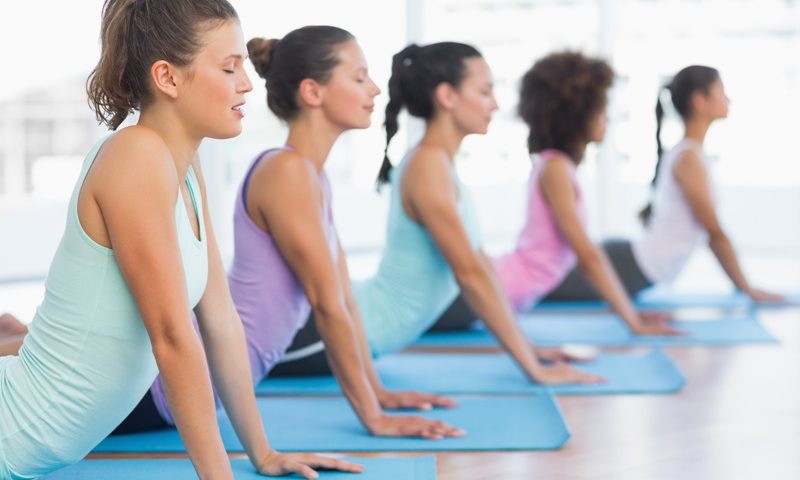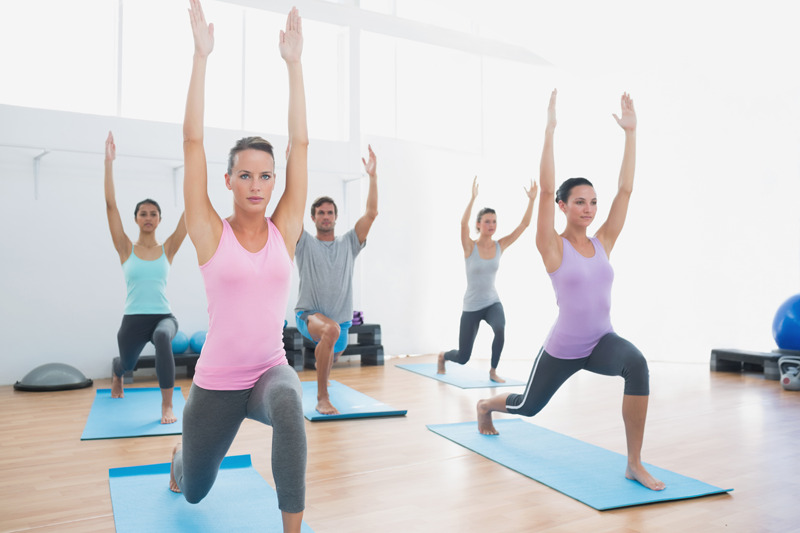
Is it Safe to Practise Yoga When You’re on Your Period?
October 12, 2018
Ways to Soften Your Ashtanga Yoga Practice
October 25, 2018Most Common Questions from Yoga Beginners

If you’re new to yoga, you’re likely to have a fair few questions. While these can be answered during your first class, you may feel more confident if you learn them beforehand. In this article, we explore some of the most common questions from yoga beginners.
What Do I Need to Begin?
To start practicing yoga, all you really need is your body and an open mind. However, it’s also helpful to have a few pieces of yoga gear including yoga pants or shorts and a lightweight t-shirt. If possible, pick up a top that’s not too baggy. This will prevent it from getting caught up during asana practice. During the class, most yogis choose to go barefoot, so there is no special footwear required. While it’s not a necessity, it’s nice to bring a fluffy towel to class with you. As well as being used to wipe your face, the towel can be used as a prop during certain asanas. As your practice progresses, you may want to invest in your own yoga mat. Although most studios are equipped with communal mats, picking up your own will mean you can practice at home, too. Additionally, using your own mat during class means that you can be sure that your mat is clean!
How Often Should I Practice?
Unfortunately, there is no set answer to this question. How often you should practice depends on a number of factors including your personality, lifestyle, and practice type. To help you decide, consider what your long-term goals are. If you’re practicing yoga to improve your mental health, try to fit in a shorter session each day. Setting aside ten minutes each morning to meditate will allow you to enter the day feeling refreshed and revitalized. If your goal is to combat chronic pain, practice just a few times a week until you find what works for you. If you feel comfortable, increase your practice gradually until your needs are met.
What Are the Benefits?
Most people know that yoga has a number of benefits, but what are they? For many people, yoga is a tool to improve mental health. Combatting anxiety and depression, regular yoga practice it the perfect alternative to long-term medication. Of course, consult a medical professional if your symptoms start to increase. Another great benefit of yoga is weight loss. If you’re looking to shed a few pounds, practice vinyasa flow yoga twice a week. Performed in a heated studio, the cardio based style is designed to get you moving. Additionally, the dynamic classes can be used to detoxify the body. Inducing a sweat, the heating studio encourages toxins to leave the body through your pores.
Can I Practice at Home?
If you’re a complete beginner, it’s best to use a yoga class before practicing independently. This way, the instructor can show you how to practice each pose correctly. As well as preventing injury, this will help you to reap maximum benefit from the routine.
Once you know what you’re doing, however, there is no problem with practicing independently. In fact, home-practice can help your craft develop at a faster rate than studio sessions alone. It’s also a great option for those who can’t make it to a physical class. Whether you live in a rural area or need to stay at home with the kids, home practice is a great alternative for those stuck in the house. Before beginning, it’s important to pick up the right gear. As well as reducing pressure on the joints, using a mat can help to set the mood. If you’re struggling to find the right mindset, try practicing in a certain area of your home. Before you begin, fill the space with cozy blankets and a scented candle. If possible, you can even use soothing music to set the tone.

What are The Different Styles of Yoga?
With new yoga styles popping up each day, it’s easy to find something that works for you. Some yogis enjoy slow classes like restorative or Yin yoga. During these sessions, you’ll spend time in long, deep stretches designed to restore the body. Alternatively, Hatha and Vinyasa classes feature more movement and challenging asanas. During these sessions, you’re encouraged to move in harmony with your breath for best results.
Should I Eat Before Class?
If you’re new to yoga, you may be wondering whether to eat before class. As a general rule, try to avoid practicing on a full stomach. If you’re attending an evening session, save your dinner until you get home. To keep your energy levels up, eat something small at least an hour before your class. More importantly, ensure you’re well hydrated, particularly before using a heated yoga class. As the heated studio induces a sweat, you’re likely to leave the session feeling dehydrated if you don’t top up on water before. Instead of gulping down water during the class, have a large glass 30 minutes before leaving the house. This will ensure you begin the session well-hydrated.
Should I Use Props?
Designed to enhance your practice, props can provide critical assistance to newbies. If you’re just starting out, pick up a basic yoga block, strap, and blanket. Blankets can be used to support the hips in certain asanas – something particularly helpful for less-flexible yogis. Blocks and straps can be used to adapt more challenging poses. Remember that props can be used by yogis of all abilities, not just experienced practitioners!
In Summary
Whether you’re planning to use a yoga class or practice independently, you’re now ready to put on your yoga leggings. While the answers above can provide a little insight, remember that yoga is a personal practice. Ultimately, you must take the time to find what works best for you.

